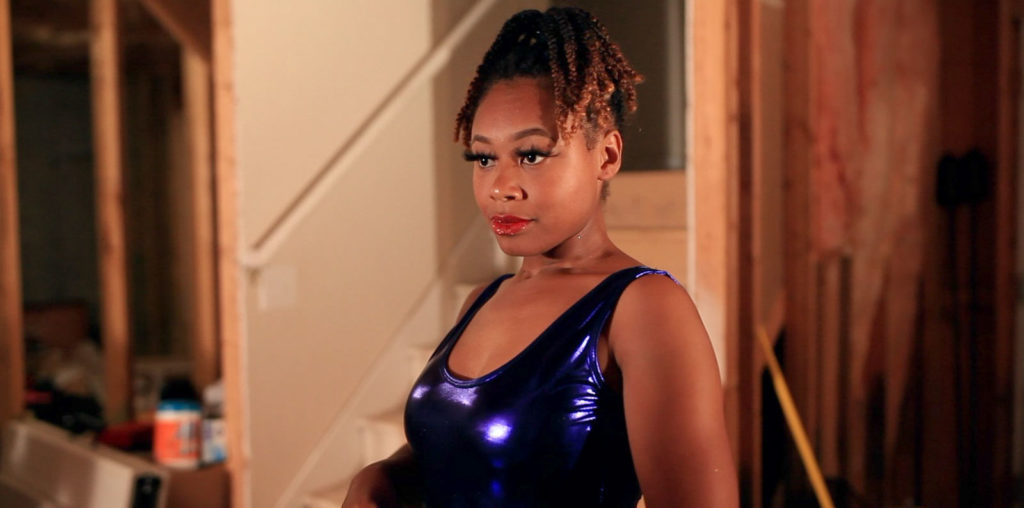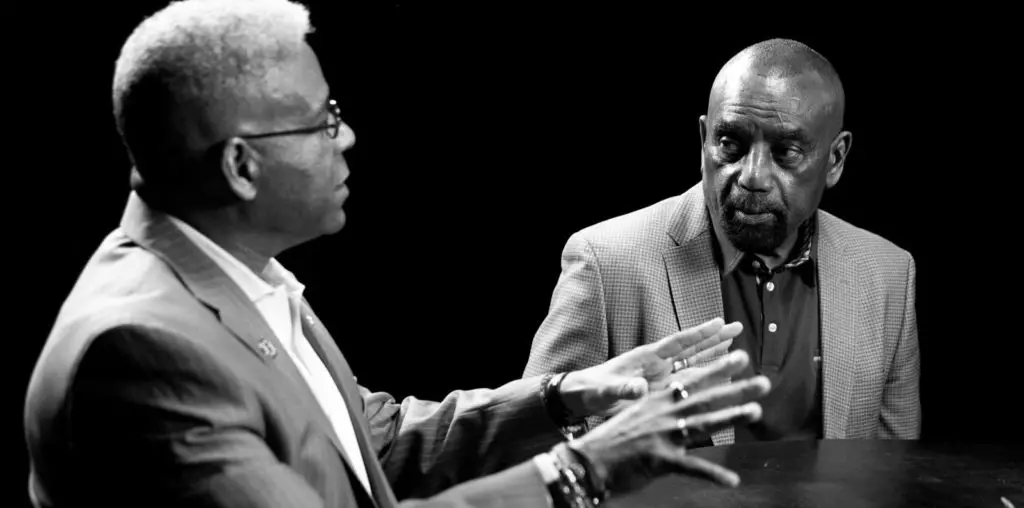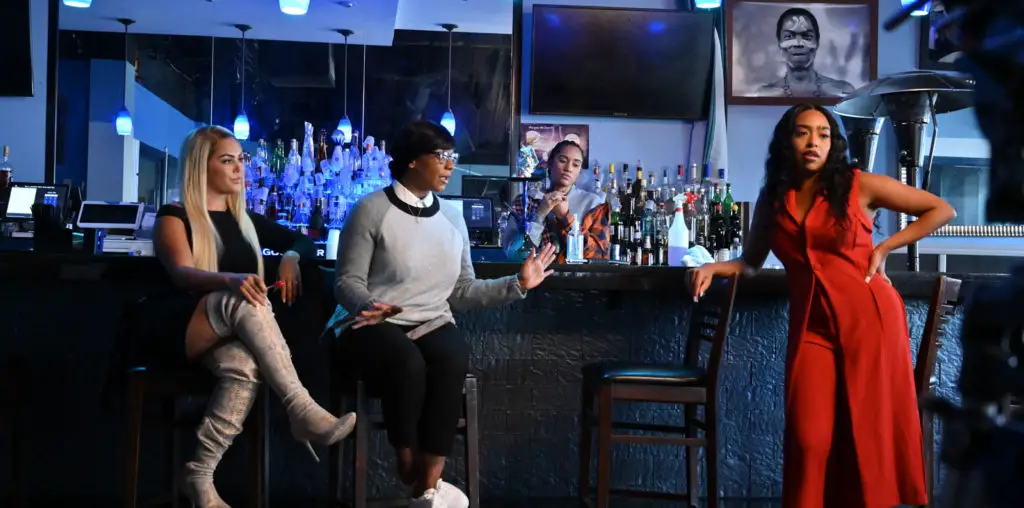
Gooding lenses Mickey’s personal connections well. Ashley Parchment plays Grace, Mickey’s girlfriend, with whom he shares his only happy and colorful moment in this otherwise black-and-white feature. The contrast of color to portray what love, affection, and care bring to one’s mental health is used well. At the same time, the predominant black-and-white grading implies a lack of hope and will in Mickey’s rollercoaster of life.
Parchment brings much-needed optimism and hope to Mickey Hardaway. The nuanced chemistry between her and Hunter maintains a tonal variance. Her scenes are limited, but her on-screen presence and acting are beautiful, staying with the viewer to the end. Cofield Jr. balances both aspects of his role well. He is a pragmatic yet empathizing therapist who is also bound by specific regulations of his profession.
Also standing out is David Chattam, portraying Mickey’s father, Randall. Chattam’s role as a short-tempered and relentless parent is antagonistic. Cox does well with adding a little backdrop to Randall’s character instead of referencing him from cliched models of abusive fathers in cinema. A brutally hurting conversation he has with Mickey offers us a little dive into his unjustified and anger-driven mindset, which further extends Cox’s another layer of social message.
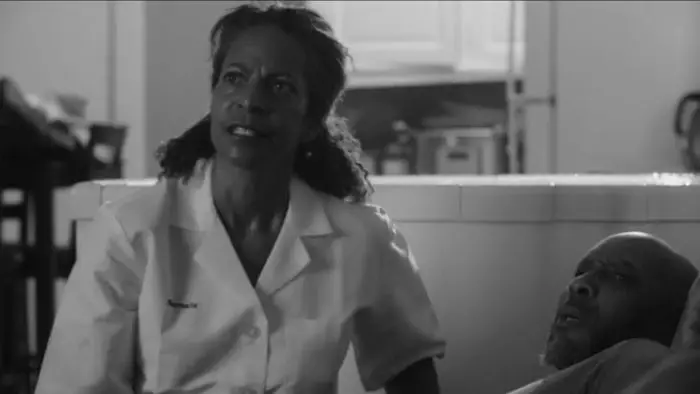
“…directly reflects on time-based therapy sessions that often leave patients stranded on an emotional cliffhanger.”
The tagline, “How much time you got?” directly reflects on time-based therapy sessions that often leave patients stranded on an emotional cliffhanger. The filmmaker calls out the procedural approach to psychology and mental health treatment, which has a subjective outcome for individual patients. And that it may need some urgent changes. The motion picture, however, could have delved further into these obligations that impact the treatment process. Still, Mickey Hardaway is one of the best independent movies I have watched this year. It may be one of the most significant indies that echoes a loud and clear message throughout its surface and the core.
Linking Harden, Grace, Mickey, and Randall are their experiences with mental health issues. These four characters are distinct, with each having vastly different traits and characteristics besides the fact that they are all African-American. Could it be that Cox intends to connect the idea of generational trauma with racial profiling and systematic discrimination? It is something that cannot be ignored. I am not a historian, but it’s globally witnessed that systematic oppression of a community furthers a chain reaction of traumatic experiences and circumstantial troubles in daily life. Discrimination, lack of social belonging, opportunities, and subsequent financial breakdown shape these folks’ challenging and strict upbringing, which can adversely affect their next of kin. The discussion surrounding mental health in the Black community does strengthen the feature’s socio-political stance.
Mickey Hardaway is a compelling character sketch. In exploring Mickey’s life, Cox has written a journal with mental health and trauma as an abstract for his research. And that’s why the predictability in the plot doesn’t detract from the experience offered. Mickey is portrayed and written with much elegance and grace. It’s a strong feature debut from the filmmaker, whose direction and penning mirror his thorough understanding of the cinematic arts and human empathy.
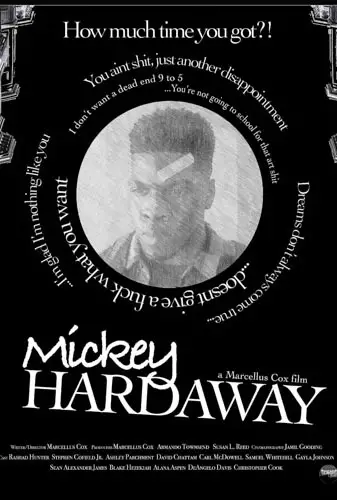
"…written with much elegance and grace."
